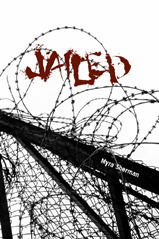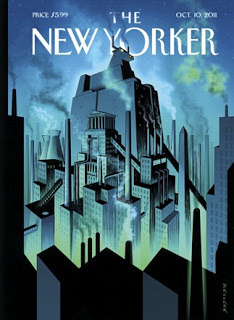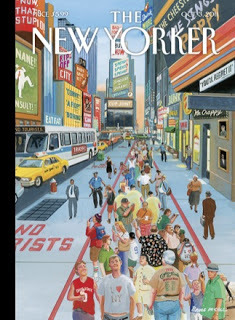Clifford Garstang's Blog, page 120
October 10, 2011
Book Review: Jailed by Myra Sherman
 Jailed by Myra Sherman
Jailed by Myra ShermanDesperanto Press (December 2011)
I bet you've never read anything like Jailed before. This collection of 14 linked short stories takes youinside a California county jail—a"detention facility"—anddoesn't let you go. You see it from the perspective of the mental healthworkers who evaluate inmates on arrival to determine which ones are suiciderisks. You see it from the perspective of unhappy guards and administrators.And you see it from the perspective of the inmates themselves.
Jails aren't supposed to be nice places, and this onecertainly isn't: It's a three-story cement block. "[T]he lobby air smellsstale. The furniture is navy fiberglass, the floor colorless vinyl." And that'sbefore we see the cells and the "rubber room" where suicidal inmates arechained to a chair to prevent them from harming themselves and others, wherethe smell of urine and vomit seems to be everywhere.
We expect the inmates to be less than thrilled withincarceration, but the book seems mostly about how the employees are alsotrapped in their jobs. Several of the mental health workers are here becausethere is no place else; in a down economy, the money to fund psychologists andsocial workers just doesn't. So they work in the jail—making snap judgments on mental stability andsuicide, sometimes with tragic consequences. They struggle in their personallives with spouses who don't understand what they're going through. And theyall hate their jobs.
Who can blame them? Here's the opening of "Jail Work": "Onmy first day of work at the jail, I was almost to the door when an inmate onthe mental health module slashed his throat." This is Zelna speaking, acounselor who, although she's on the verge of quitting because the work is sostressful, becomes the Director of Mental Health for the jail over her husband'sobjections. One more boulder in a very rocky marriage.
While this glimpse inside the jail is fascinating, there's acertain amount of sameness to the stories. They're grim and gruesome. Few ofthe characters—Zelnais an exception—areadmirable. They seem to exist in the dark, inside the cement walls of the jail,with little or no light. They're abusers or in abusive relationships. Parentsare absent or, at best, distant and clueless. There's no love to speak of. Thejail is a miserable place.
Maybe that's the point, or at least part of it. But while Irecommend the book, I also advise against reading it one sitting. Take it astory at a time. Don't let the book hold you prisoner. Escape into the sun fromtime to time.
Published on October 10, 2011 07:03
Before You Submit: Some Tips for Self-Editing
 When I saw the title of Carol Saller's post at The Chronicle of Higher Education's Lingua Franca blog (Before You Submit: Some Tips for Self-Editing), I was almost afraid to read it. I've been doing a lot of submitting lately, and I know I am not immune to the common errors writers make. It might have been easier just to ignore the subject and hope that any editors reviewing my work wouldn't notice whatever mistakes I'd made. Better not to know!
When I saw the title of Carol Saller's post at The Chronicle of Higher Education's Lingua Franca blog (Before You Submit: Some Tips for Self-Editing), I was almost afraid to read it. I've been doing a lot of submitting lately, and I know I am not immune to the common errors writers make. It might have been easier just to ignore the subject and hope that any editors reviewing my work wouldn't notice whatever mistakes I'd made. Better not to know!But I read it anyway, because I wanted to see what Carol came up with, and because I teach writing and want to pass along whatever tips my students will find helpful. Self-editing is hard, but as writers we need to get better at it. And the list is a good one--avoiding repetition and throat clearing, being aware of personal tics and overused constructions, rooting out non sequiturs. She also points out several areas in which writers tend to over correct--things like split infinitives, for example.
That's just the tip of the iceberg, however. The list of common mistakes is a long one, but Carol's post is a good place to start.
Published on October 10, 2011 06:06
October 7, 2011
Tips for Writers: Walk This Way
 My tip today is closely related to theprevious one. (See The Thesaurus Throwdown.)
My tip today is closely related to theprevious one. (See The Thesaurus Throwdown.)This week I was teaching an adulteducation class in writing fiction. The group has been enthusiastic and fun,and they seem to appreciate the tips that I've been able to share with them.Each week we read a couple of stories by well-known writers that illustratesome aspect of the craft and we discuss them. On the subject of handling Time,I assigned Tim O'Brien's amazing story "The Things They Carried" from hisamazing book of the same name. The way backstory is delivered in the story isquite amazing. (Subtip: don't overuse words like "amazing.")
But that's not what I'm writing abouthere. Early in the story, the narrator says this:
"To carry something was to hump it, aswhen Lieutenant Jimmy Cross humped his love for Martha up the hills and throughthe swamps. In its intransitive form, to hump meant to walk, or to march, butit implied burdens far beyond the intransitive."I love this narrative intrusion intothe story to comment on the choice of the word "hump," which is exactly theright word for the action described because of the extra weight that the worditself carries. When choosing the right word—a verb, or a noun—thoseimplications are critical, and this alternative to the verb "to walk" is agreat illustration. Whenever I see "walk" in a student's story, I circle itbecause there is almost always a more evocative alternative. Not a synonym, buta word that is more precise or one that has a connotation that will providemore depth to the sentence in which the word is used. "To hump" implies burdensfar beyond the intransitive. But what does "walk" really mean. Can we visualize"to walk"? Does it suggest anything about mood?
Maybe, but there are so many other ways that one can render motion from one point to another that I have to believe there will always be a better choice: step, tread, pace, stride, stride out, move fast, strut, stalk, prance, mince, be proud, tread lightly, tiptoe, trip, skip, dance, curvet, leap, tread heavily, lumber, clump, stamp, tramp, goosestep, toddle, patter, pad, totter, stagger, lurch, reel, stumble, oscillate, limp, hobble, waddle, shuffle, shamble, dawdle, move slowly, paddle, wade, go on foot, ride shanks' mare, foot it, hoof it, hike, footslog, wear out shoe leather, plod, stump, trudge, jog, go, go for a walk, ambulate, perambulate, circumambulate, pace up and down, go for a run or a jog, take the air, take one's constitutional, march, quick march, slow march, troop, file, file past, defile, march in procession, come after, walk behind, follow, walk in front, precede.
(All of these are from a thesaurus, and note that the word "hump" isn't included, and yet that was exactly the right word for O'Brien.)
Published on October 07, 2011 05:16
October 5, 2011
Should I Hire a Book Publicist?
 I'm seriously asking myself this question. When my book In an Uncharted Country came out in 2009, I got a late start with book promotion and then discovered that I didn't know what I was doing. I participated in a seminar on book promotion given by Bella Stander, Book Promotion 101, and that was excellent. I highly recommend this for anyone who is going to do book promotion on his or her own, as I planned to do. I feel that I learned a lot of what I needed to know--from setting up a website to arranging a book tour. Very helpful.
I'm seriously asking myself this question. When my book In an Uncharted Country came out in 2009, I got a late start with book promotion and then discovered that I didn't know what I was doing. I participated in a seminar on book promotion given by Bella Stander, Book Promotion 101, and that was excellent. I highly recommend this for anyone who is going to do book promotion on his or her own, as I planned to do. I feel that I learned a lot of what I needed to know--from setting up a website to arranging a book tour. Very helpful.But I still felt a little overwhelmed by all the work it was going to take to get the word out about the book, and so I looked into hiring a publicist. To my regret, I started that process too late, when the book was already out. That made it difficult to schedule appearances, reviews, and interviews. And while the publicist did what she could, I'm afraid we didn't have the impact we could have had.
Which is why I'm starting earlier this time. My new book, a novel in stories called What the Zhang Boys Know, is due out next September from Press 53, and once again the bulk of the publicity responsibility will fall to me. Although I have learned a lot since the first book came out, and I've got a longer lead time, I'm still thinking of hiring a publicist for this book in order to extend its reach. Which is why I found this article in GalleyCat very interesting: Should I Hire a Book Publicist? I love the fact that Lauren Cerand's answer isn't an automatic Yes. Different authors have different skills, and there's a lot that we can do on our own. And maybe we can engage a publicist to help with the parts that are beyond us.
So that's what I'm thinking. I might still hire someone to help, even though I have a lot of my own ideas for how this is going to work.
Published on October 05, 2011 07:49
October 3, 2011
The New Yorker: "Oubliette" by David Long

October 10, 2011: "Oubliette" by David Long
Supposedly, this story is part of a series of "flashfictions" about characters drawn from a novel by Long, which, I would imagine,is why this feels less like a stand-alone story and more like a novel excerpt.Except that it's pretty short, it doesn't feel like flash and it also doesn'tfeel much like a short story.
Nathalie is the daughter of Peter Chilcott, a documentaryfilmmaker, and a woman who dies of Huntington's disease when Nathalie is a teenager.But before she's diagnosed, and simply behaving oddly, she locks Nathalie inthe attic (hence the title). This freaks everyone out, of course, leading todivorce, then diagnosis, then treatment and regular visits. Frankly, I didn'tfind it very interesting.
What I found more interesting was the Q&A with DavidLong, in which he says, among other things,
After publishing threeshort-story collections, I was persuaded to write my first novel, "The Falling Boy," and then it was as if theshort-story switch had been toggled off. "Novels are hard," I told people, "butthey're less trouble than a book of stories. Novels are mostly middle; storiesare all beginnings and endings."
He goes on to say that after writing several long projects,he was excited to work with a much shorter form. I can relate.
The story is behind the pay wall, but I really don't thinkyou're missing much.
Published on October 03, 2011 18:24
September 30, 2011
Tips for Writers: The Thesaurus Throwdown
 This post is the first in what I hope will be a regular Friday discussion on Tips for Writers. Not that I know any more than anyone else, but I'll put some things out there for people to consider, dispute, elaborate upon. The first one deals with the writing process itself.
This post is the first in what I hope will be a regular Friday discussion on Tips for Writers. Not that I know any more than anyone else, but I'll put some things out there for people to consider, dispute, elaborate upon. The first one deals with the writing process itself.In the September issue of The Writer's Chronicle, Mark Doty comes down hard on the thesaurus: "If you write a poem with the aid of a thesaurus, you will almost inevitably look like a person wearing clothing chosen by someone else. I am not sure that a poet should even own one of the damn things." When I read that, I nodded, knowing from my stint as a teacher of Freshman composition that a thesaurus can be dangerous, much like an English-French dictionary can be abused by beginning language learners. Just because a word is in the thesaurus or the dictionary doesn't mean it's the right choice in a given situation.
But today the new issue of TWC arrived. (It came Priority Mail, for some reason; maybe the AWP folks thought I was having a writing emergency of some kind.) A letter writer, Ralph Culver of Burlington VT, complains about Doty's comments, and says that it's "one of the oddest statements I've ever read in your pages--and poets say some pretty strange things. . ." He goes on in that vein, defending the poor thesaurus, and the magazine allows Doty a response.
I confess that while I agree with Doty about the dangers of using a thesaurus, I've got one handy at all times while writing, and I do resort to it. But, knowing the dangers, I use it with extreme caution. I don't set out to discover words I didn't know existed--words that I might not be able to use properly, and that will almost certainly sound stilted in the context of my normal vocabulary. Instead, I simply use it to remind me of words I already know. Maybe everyone else has a better memory than I do, but when I'm writing I will often feel a word swirling in my brain just out of reach. I know that I'm looking for just the right choice, the precise noun that indicates the color I'm thinking of, the verb that states exactly the action that I want to describe (without having to rely on one of those evil adverbs). I struggle, and it doesn't come. So I reach for the thesaurus and begin the hunt for just the right word. Usually--not always, unfortunately--I find what I was looking for and couldn't remember. It's a small triumph, but such is the life of a writer.
So, I mostly agree with Doty on this point, and I think Culver misses the point. A thesaurus can be dangerous in the hands of an amateur. But I keep one close just the same.
Published on September 30, 2011 12:03
September 27, 2011
The New Yorker: "The House on Sand Creek" by Thomas Mcguane

October 3, 2011: "The House on Sand Creek" by Thomas Mcguane
Since Mcguane has a novel coming out this year, and since Ididn't think this story came even close to being satisfying, I thought itsurely must be an excerpt. But based on the Q&A with Thomas Mcgaune, Iguess it isn't. This is the second Mcguane story in TNY this year, and while Ididn't love the first one, I liked it more than I like this one.
Here's the basic story (spoiler alert—because you don't needto bother to read the story): small town lawyer marries Monika, a refugeearchitectural student from Yugoslavia and moves to the country—into a horridhouse vacated by crazy people—but after a while she leaves him and moves home.Lawyer becomes acquainted with Bob, a crazy neighbor. Monika comes back, alongwith Karel, her child by a Nigerian businessman. Karel enjoys Bob's company,especially while Lawyer and Monika are fighting. Bob kidnaps Karel, Lawyersummons the boy's father, but Bob and Karel are found. Life goes on.
And that's about it. Some of these characters arepotentially interesting (Monika, for example, is impulsive and quirky), but inthis story I don't think they're fully developed. Which is why I thought it wasan excerpt. We do get glimpses of themes: the lawyer is fond of Karel and can'thelp himself with Monika, who will surely leave him again; Bob is alsodelusional. Beyond that? There's not much there.
Published on September 27, 2011 07:44
September 26, 2011
Interview with Kevin Watson, Press 53
This is a really nice short interview with Kevin Watson about Press 53, a publisher who isn't focused on market trends; he publishes what he likes. I'm grateful that my book, In an Uncharted Country, is among them, and that my new book, What the Zhang Boys Know, will be.

Published on September 26, 2011 15:12
September 22, 2011
Busy month coming to an end
 It's not quite over, but the end is in sight. I've basically done no writing this month, which is a first for me, although I may be able to rectify that next week. I've just been too busy on writing-related things!
It's not quite over, but the end is in sight. I've basically done no writing this month, which is a first for me, although I may be able to rectify that next week. I've just been too busy on writing-related things!I got back from my writing retreat in France just before labor day, and spent some time recovering, dealing with 3 weeks of mail, etc.
Then, having accepted an offer to publish my new book (it comes out next fall), I decided to make a big push to publish the rest of the stories. Submission is time consuming, and I spent several days working on nothing else. It's already paid some dividends, however, with a couple of accepted stories this month.
And having just finished a new novel (the retreat was meant for putting the finishing touches on the manuscript), I began the search for an agent. So I needed to write the query letter and also research the agents who would be right for me (and for this book). Being alive is the main criterion, but there are others.
I also needed to prepare for a couple of panels I was on during the first weekend after Labor Day, one at the Write-Brained Network's workshop in Harrisonburg, and one at WriterHouse in Charlottesville.
Then the online class I'm teaching through Writers.com began on September 6, and the face-to-face class I'm teaching at BRCC/WSCE began on the 13th. And I taught a half-day seminar at WriterHouse on publishing and, that same day, gave a reading in Staunton sponsored by SWAG (the Staunton Waynesboro Augusta Group of Writers).
This week I gave a reading in Northern Virginia at the Fall for the Book Festival. And on most days I've devoted some time to planning for the Northwestern University Alumni Association Annual Leadership Symposium, of which I am the co-chair. It starts tomorrow, and I'm heading to Chicago this afternoon.
I think I forgot a few dozen things in that list, including planning for the new issue of Prime Number Magazine, working on the print annual issue of the magazine, and more!
I'm looking forward to Monday when I might actually be able to get some writing done.
Published on September 22, 2011 10:37



